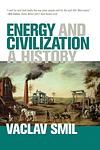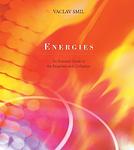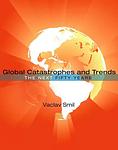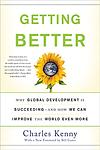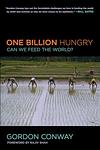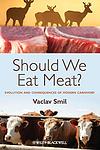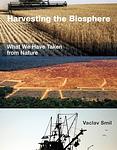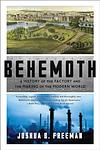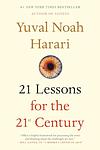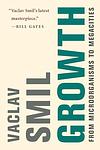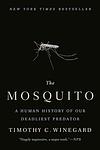The Greatest "Global" Books of All Time
Click to learn how this list is calculated.
This list represents a comprehensive and trusted collection of the greatest books. Developed through a specialized algorithm, it brings together 305 'best of' book lists to form a definitive guide to the world's most acclaimed books. For those interested in how these books are chosen, additional details can be found on the rankings page.
Genres
The "Global" category in books encompasses a diverse and expansive range of literature that transcends geographical boundaries and cultural specificities, aiming to provide readers with a broad perspective on the world. This genre includes works that deal with international themes, cross-cultural interactions, global issues such as climate change, migration, international relations, and global economics. It also features stories set in various locations around the world, offering insights into the lives and experiences of people from different cultural backgrounds. The Global category is designed to foster understanding and empathy among readers, encouraging them to think beyond their immediate surroundings and consider the interconnectedness of our modern world. Whether through fiction that explores the human condition across continents or non-fiction that delves into global trends and challenges, the Global category seeks to expand horizons and stimulate a sense of global citizenship.
Countries
Date Range
Reading Statistics
Click the button below to see how many of these books you've read!
Download
If you're interested in downloading this list as a CSV file for use in a spreadsheet application, you can easily do so by clicking the button below. Please note that to ensure a manageable file size and faster download, the CSV will include details for only the first 500 books.
Download-
1. The Naked Ape by Desmond Morris
This book offers a groundbreaking, zoological perspective on human behavior, examining humans as a species of animal. The author, a renowned zoologist, delves into various aspects of human life including sexuality, child-rearing, and social structures, comparing them with the behaviors of other animals. Through this comparative analysis, the book challenges conventional views on human exceptionalism, arguing that many human behaviors can be understood through our biological and evolutionary origins. The work has sparked considerable debate and discussion, influencing both scientific and popular views on human nature since its publication.
The 2634th Greatest Book of All Time -
2. The Limits To Growth by Donella H. Meadows et al.
This book presents a groundbreaking study that uses computer modeling to predict the future outcome of the world's economic and environmental system. It argues that if current trends in population growth, industrialization, pollution, food production, and resource depletion continue unchanged, they will lead to economic and societal collapse within the 21st century. The authors emphasize the need for sustainable development practices, suggesting that significant changes in policies and behaviors are essential to avoid the dire consequences projected by their models. The work has sparked widespread debate and has been influential in environmental and economic circles, highlighting the interconnectedness of global systems and the urgent need for coordinated action to ensure a viable future.
The 5739th Greatest Book of All Time -
3. Sacred And Secular by Ronald Inglehart, Pippa Norris
This book explores the complex relationship between the process of secularization and the vitality of religion in the contemporary world. Drawing on a wealth of empirical data from the World Values Survey, which spans nearly 100 countries and covers the beliefs and values of the majority of the world's population, the authors argue that societal modernization leads to a decline in traditional religious values but does not necessarily result in the disappearance of religion. Instead, the nature of religiosity changes, adapting to new social contexts. The analysis delves into how economic development, social progress, and political change influence the secularization process, and conversely, how the persistence of strong religious beliefs can shape societal development. This nuanced examination challenges simplistic narratives about faith and secularism, suggesting that the relationship between the sacred and the secular is both complex and evolving.
The 7039th Greatest Book of All Time -
4. Energy by Vaclav Smil
This book provides a comprehensive exploration of energy in its various forms, tracing its role throughout human history. The author delves into the science of energy, from the muscle power of prehistoric humans to the modern era's reliance on fossil fuels and the potential of renewable sources. With a focus on the environmental and societal impacts of energy consumption, the narrative emphasizes the importance of sustainable energy practices. Through a blend of historical context, scientific analysis, and a look at current energy challenges, the book offers a deep understanding of the essential role energy plays in shaping civilizations and the urgent need for a more efficient and environmentally friendly approach to energy use.
The 8070th Greatest Book of All Time -
5. Factfulness by Hans Rosling
The book challenges common misconceptions about the state of the world, using a wealth of statistical data to argue that, contrary to popular belief, global living conditions are improving significantly. It introduces ten instincts that distort our perspective—from the fear instinct (which leads us to perceive the world as more frightening than it is) to the destiny instinct (which causes us to assume that the fates of populations are predetermined). The author, a renowned public health expert, encourages readers to adopt a "factful" mindset, which relies on data and evidence to create a more accurate understanding of the world, ultimately fostering a more positive and productive approach to global challenges.
The 8389th Greatest Book of All Time -
6. Energy At The Crossroads by Vaclav Smil
This book provides a comprehensive analysis of global energy challenges, focusing on the transition from traditional fossil fuels to more sustainable energy sources. It delves into the historical context of energy consumption, the environmental impacts of current energy use, and the technological, economic, and social hurdles that need to be overcome to shift towards renewable energy. The author critically examines the feasibility of various alternative energy sources, including solar, wind, and nuclear power, and emphasizes the importance of energy efficiency. Through a detailed and realistic assessment, the book presents a nuanced perspective on the complex interplay between energy, environment, and society, urging for a more informed and strategic approach to energy policy and innovation.
The 8405th Greatest Book of All Time -
7. Fathoms: The World In The Whale by Rebecca Giggs
"Fathoms: The World In The Whale" is a profound exploration of the relationship between humans and whales, delving into the history, mythology, and biology of these majestic creatures. The book weaves together environmental and cultural narratives, examining the impact of human activity on whales and their habitats, while also reflecting on what whales signify in our collective imagination. Through lyrical prose, the author invites readers to consider the ethical dimensions of wildlife conservation, the consequences of climate change, and the intricate connections between the natural world and human society, all through the lens of the awe-inspiring presence of whales in our oceans.
The 8437th Greatest Book of All Time -
8. Creating The Twentieth Century by Vaclav Smil
This book provides a comprehensive analysis of the technical innovations and scientific discoveries that fundamentally transformed the 20th century, laying the groundwork for modern society. It delves into the period from 1867 to 1914, which the author identifies as crucial years when core technologies such as electricity, the internal combustion engine, and basic chemical processes were developed. These innovations, the book argues, set the stage for the unprecedented economic growth and improvement in human well-being that characterized the 20th century. Through a detailed examination of the interplay between technological advancement and societal change, the narrative explores how these foundational developments have shaped the contemporary world, highlighting both the positive outcomes and the challenges they have brought.
The 8565th Greatest Book of All Time -
9. How To Spend $50 Billion To Make The World A Better Place by Bjørn Lomborg
This book presents a thought-provoking analysis on the most effective ways to utilize a hypothetical budget of $50 billion to address global challenges. The author, leveraging insights from leading economists and experts, prioritizes various interventions—from healthcare and education to climate change mitigation—based on their potential to deliver the greatest benefits to humanity. Through a rigorous cost-benefit analysis, the text challenges readers to think critically about the allocation of resources in tackling the world's most pressing issues, advocating for evidence-based solutions that promise the highest returns on investment for improving global welfare.
The 8644th Greatest Book of All Time -
10. Big History by Cynthia Stokes Brown
This book offers a sweeping overview of the universe's 13.8 billion-year history, from the Big Bang to the present day, integrating insights from a wide range of disciplines including cosmology, geology, anthropology, and history. It presents an accessible and engaging narrative that explores major developments and themes across time, highlighting the interconnectedness of the cosmos, Earth, life, and humanity. By weaving together the sciences and humanities, the book provides readers with a comprehensive understanding of the complexity and richness of the universe's story, encouraging a deeper appreciation of humanity's place within the vast tapestry of existence.
The 8955th Greatest Book of All Time -
11. Sustainable Energy by David J.C. Mackay
This book offers a comprehensive exploration of the potential for sustainable energy sources to replace fossil fuels, addressing the technical, practical, and environmental challenges involved. The author meticulously quantifies the capabilities of various renewable energy sources, such as wind, solar, and bioenergy, in meeting the world's energy demands in a sustainable manner. Through clear, accessible analysis, the book dispels myths surrounding renewable energy and emphasizes the importance of a balanced approach that includes energy conservation, efficiency, and the development of a diverse mix of renewable energy sources to achieve a sustainable energy future.
The 9047th Greatest Book of All Time -
12. Energies by Vaclav Smil
This book provides a comprehensive exploration of the various forms of energy that power the planet, from traditional fossil fuels to renewable sources like wind and solar power. The author delves into the scientific principles underlying energy conversion, storage, and transmission, offering insights into the complexities of energy systems and their impacts on the environment and society. Through a detailed analysis, the book presents a balanced view on the challenges and opportunities of transitioning to a more sustainable energy future, emphasizing the need for informed policy decisions and technological innovations.
The 9047th Greatest Book of All Time -
13. Global Catastrophes And Trends by Vaclav Smil
This book provides a comprehensive analysis of the major natural and human-induced disasters and trends that have the potential to significantly alter the course of human civilization. It delves into a wide array of topics, from environmental degradation and climate change to the risks of nuclear warfare and pandemics, offering a detailed examination of their causes, impacts, and the likelihood of their occurrence. The author meticulously assesses the probability and severity of these global challenges, combining scientific research with historical context to evaluate how they might shape the future. Through a blend of rigorous analysis and insightful commentary, the book aims to enhance our understanding of the complex dynamics that govern our world and the potential pathways to mitigate these global risks.
The 9047th Greatest Book of All Time -
14. Energy Transitions by Vaclav Smil
This book provides a comprehensive analysis of the historical shifts in energy sources and consumption patterns, from traditional biomass to fossil fuels and the potential future transition to renewable energy sources. It examines the technological, economic, and environmental challenges associated with these energy transitions, emphasizing the complexity and duration of these shifts. The author argues that while transitions to more efficient and less environmentally damaging energy sources are necessary, they will be gradual and require significant technological innovations and societal adaptations. Through a detailed exploration of past and present energy systems, the book offers insights into the future of global energy consumption and the path towards a more sustainable energy landscape.
The 9212th Greatest Book of All Time -
15. Energy Myths And Realities by Vaclav Smil
In "Energy Myths and Realities," the author critically examines the widespread misconceptions surrounding energy and its future. Through a rigorous analysis of data and trends, the book debunks popular myths about the potential of renewable energy sources, the pace of energy transitions, and the feasibility of achieving rapid changes in energy systems. It emphasizes the complexity of energy production and consumption, arguing for a more nuanced understanding of energy realities. The author advocates for realistic expectations and pragmatic approaches to energy policy and innovation, cautioning against the dangers of oversimplification and the allure of quick fixes in the discourse on energy sustainability and security.
The 9212th Greatest Book of All Time -
16. Getting Better by Charles Kenny
The book presents an optimistic view of global progress, arguing that despite the persistence of economic disparities, the world has seen significant improvements in health, education, and quality of life over the past few decades. It challenges the pervasive pessimism surrounding global development by providing evidence of how innovations, policy changes, and international aid have contributed to lifting millions out of poverty, reducing child mortality rates, and increasing literacy and life expectancy worldwide. The narrative is built around the idea that humanity has made remarkable strides in creating a better world for all, emphasizing the importance of continued efforts and investments in global development to sustain and further these gains.
The 9296th Greatest Book of All Time -
17. Sustainable Materials by Julian M. Allwood
This book provides a comprehensive exploration into the world of sustainable materials, focusing on the environmental impact of material production and usage. It delves into the science and engineering behind creating materials that are not only durable and functional but also minimize harm to the environment. Through a detailed analysis of various materials, the book offers insights into how industries can shift towards more sustainable practices. It emphasizes the importance of reducing material consumption, recycling, and reusing resources as key strategies for achieving sustainability. The book serves as a crucial resource for engineers, designers, policymakers, and anyone interested in the sustainable development of materials and its significance for the future of the planet.
The 9384th Greatest Book of All Time -
18. One Billion Hungry by Gordon Conway
This book provides a comprehensive examination of the global hunger crisis, emphasizing the urgent need for sustainable solutions to feed a rapidly growing world population, projected to reach nine billion by 2050. It delves into the complexities of food security, exploring innovative approaches to increase agricultural productivity, enhance nutritional value, and ensure equitable access to food. The author, an expert in sustainable agriculture, argues for a multifaceted strategy that combines advancements in science and technology with policy reforms and community engagement. By presenting a blend of case studies, research findings, and personal insights, the book aims to inspire action and optimism in addressing one of the most critical challenges of our time: ensuring that a billion people currently facing hunger have access to sufficient, nutritious food.
The 9384th Greatest Book of All Time -
19. Should We Eat Meat? by Vaclav Smil
This book provides a comprehensive examination of the role of meat in human diets and its impact on health, the environment, and society. It delves into the history of meat consumption, explores the ethical considerations surrounding animal farming, and analyzes the environmental consequences of meat production, including greenhouse gas emissions and land use. The author presents a balanced view, weighing the nutritional benefits of meat against its ecological footprint and considering sustainable alternatives. Through a detailed and scientific approach, the book encourages readers to ponder the complex question of whether the consumption of meat is justifiable in the modern world, offering insights into possible future directions for global dietary practices.
The 9504th Greatest Book of All Time -
20. Harvesting The Biosphere by Vaclav Smil
This book provides a comprehensive examination of the human impact on Earth's biosphere, focusing on the extraction and exploitation of biological resources. It delves into historical and contemporary practices of harvesting plants and animals for food, fuel, and raw materials, quantifying the scale and intensity of these activities. The author meticulously analyzes how these practices have evolved over time and assesses their sustainability and environmental consequences. By offering a detailed account of the biosphere's transformation under human influence, the book presents a critical perspective on the limits of resource utilization and the urgent need for adopting more sustainable practices to ensure the long-term viability of our planet's ecosystems.
The 9504th Greatest Book of All Time -
21. Making The Modern World by Vaclav Smil
This book provides a comprehensive exploration of the materials that have shaped human history, from the Stone Age to the present. It delves into how the extraction and use of various materials, including metals, fossil fuels, and biomass, have been pivotal in the development of civilizations and the modern industrial world. The author examines the environmental and societal impacts of material consumption, emphasizing the sustainability challenges posed by our ongoing reliance on these resources. Through a detailed analysis of material flows and innovations, the book offers insights into the complexities of achieving a more sustainable future and the critical role of efficient material use in making the modern world.
The 9504th Greatest Book of All Time -
22. Energy And Civilization by Vaclav Smil
This book provides a comprehensive examination of the role that energy has played in the development of human societies, from the harnessing of fire by early humans to the complex energy grids of the 21st century. It explores how the transformation and consumption of energy have been pivotal in the advancement of civilizations, underpinning economic systems, technological progress, and the rise and fall of empires. The author meticulously analyzes the transition from muscle power to fossil fuels and renewable energy sources, highlighting the environmental and societal impacts of our growing energy demands. Through a detailed historical and scientific lens, the narrative underscores the critical importance of energy management in addressing current global challenges, advocating for a more sustainable and efficient future.
The 9804th Greatest Book of All Time -
23. 21 Lessons For The 21st Century by Yuval Noah Harari
This book navigates through the complexities and challenges of the 21st century, offering insightful analysis and thought-provoking lessons on various pressing issues such as technology, politics, religion, and education. The author delves into the impact of artificial intelligence and biotechnology, exploring how they are reshaping the world and questioning the future of humanity in this rapidly changing landscape. Through a series of compelling essays, the book encourages readers to reflect on the values, meaning, and personal engagement in a world full of noise and uncertainty, aiming to equip society with the understanding and wisdom to navigate the unknown future.
The 9962nd Greatest Book of All Time -
24. Growth by Vaclav Smil
This book provides a comprehensive exploration of growth in various domains, including biological, societal, economic, and technological realms. The author meticulously examines the principles and patterns of growth, from the microscale of organisms to the macroscale of human civilization. Through a detailed analysis, the narrative delves into the implications of unchecked growth, particularly focusing on the sustainability challenges it poses to the environment and future generations. The work is a thought-provoking synthesis that encourages readers to reconsider the conventional pursuit of growth, advocating for a more measured and sustainable approach to development across all facets of life.
The 10053rd Greatest Book of All Time -
25. The Mosquito by Timothy C. Winegard
This book presents a compelling examination of how the mosquito has been a pivotal force in shaping human history. Through meticulous research, it uncovers the profound impact these tiny insects have had on wars, colonization, and the spread of diseases across continents. The narrative delves into the biological and ecological aspects of the mosquito, revealing how its role as a carrier of deadly pathogens like malaria, yellow fever, and dengue has influenced the outcomes of battles, the fates of empires, and the lives of billions of people. By weaving together historical events with scientific insights, the book offers a unique perspective on the mosquito's place in the world and its indelible influence on human civilization.
The 10053rd Greatest Book of All Time
Reading Statistics
Click the button below to see how many of these books you've read!
Download
If you're interested in downloading this list as a CSV file for use in a spreadsheet application, you can easily do so by clicking the button below. Please note that to ensure a manageable file size and faster download, the CSV will include details for only the first 500 books.
Download


